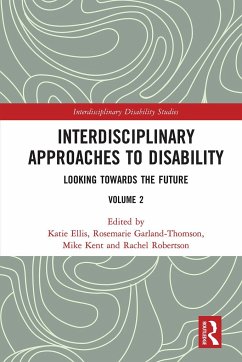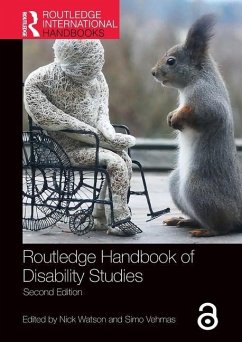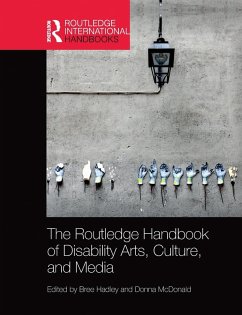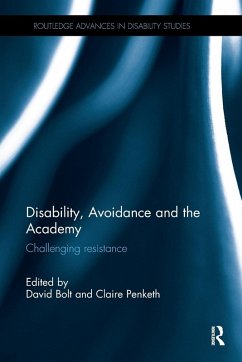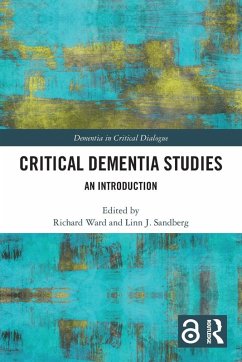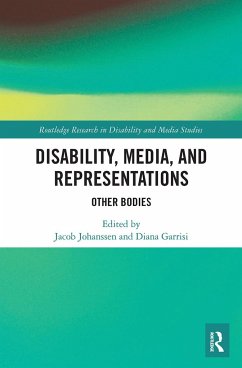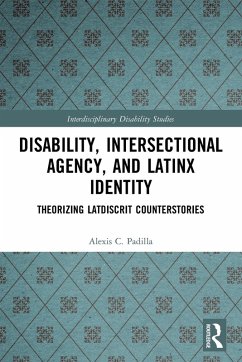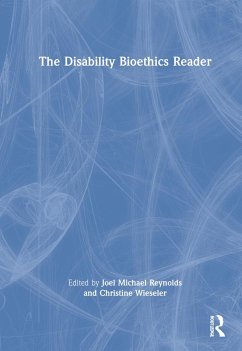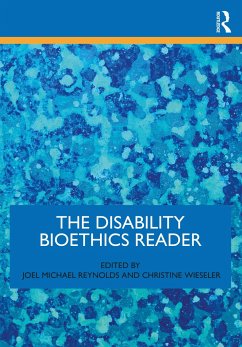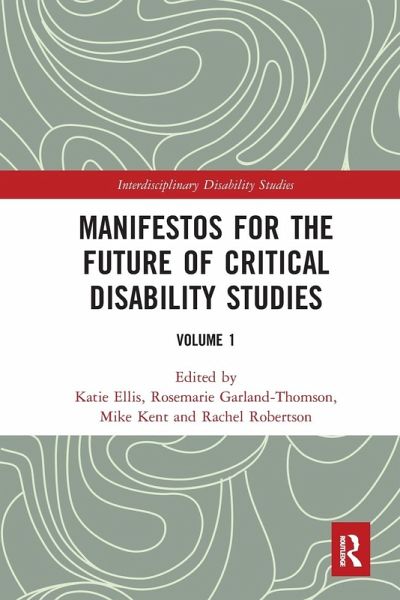
Manifestos for the Future of Critical Disability Studies
Volume 1
Herausgegeben: Ellis, Katie; Garland-Thomson, Rosemarie; Kent, Mike; Robertson, Rachel
Versandkostenfrei!
Versandfertig in 6-10 Tagen
43,99 €
inkl. MwSt.

PAYBACK Punkte
22 °P sammeln!
This collection identifies the key tensions and conflicts being debated within the field of critical disability studies and provides both an outline of the field in its current form and offers manifestos for its future direction. Traversing a number of disciplines from science and technology studies to maternal studies, the collection offers a transdisciplinary vision for the future of critical disability studies.Some common thematic concerns emerge across the book such as digital futures, the usefulness of anger, creativity, family as disability allies, intersectionality, ethics, eugenics, ac...
This collection identifies the key tensions and conflicts being debated within the field of critical disability studies and provides both an outline of the field in its current form and offers manifestos for its future direction. Traversing a number of disciplines from science and technology studies to maternal studies, the collection offers a transdisciplinary vision for the future of critical disability studies.
Some common thematic concerns emerge across the book such as digital futures, the usefulness of anger, creativity, family as disability allies, intersectionality, ethics, eugenics, accessibility and interdisciplinarity. However, the contributors who write as either disabled people or allies do not proceed from a singular approach to disability, often reflecting different or even opposing positions on these issues.
Containing contributions from established and new voices in disability studies outlining their own manifesto for the future of the field, this book will be of interest to all scholars and students working within the fields of disability studies, cultural studies, sociology, law, history and education.
The concerns introduced here are further explored in its sister volume Interdisciplinary approaches to disability: looking towards the future.
Some common thematic concerns emerge across the book such as digital futures, the usefulness of anger, creativity, family as disability allies, intersectionality, ethics, eugenics, accessibility and interdisciplinarity. However, the contributors who write as either disabled people or allies do not proceed from a singular approach to disability, often reflecting different or even opposing positions on these issues.
Containing contributions from established and new voices in disability studies outlining their own manifesto for the future of the field, this book will be of interest to all scholars and students working within the fields of disability studies, cultural studies, sociology, law, history and education.
The concerns introduced here are further explored in its sister volume Interdisciplinary approaches to disability: looking towards the future.





